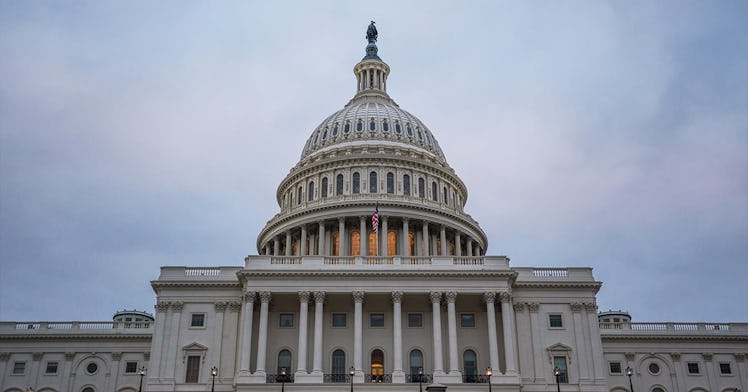Congress Could Save Abortion Before June 2022 — But Will They?
Congress has legislation that could enshrine the right to abortion. But will they get their act together and protect it?

After a day of impassioned testimony regarding the constitutionality of a 15-week Mississippi abortion ban, the majority-conservative Supreme Court seems poised to set the groundwork to overturn Roe v. Wade. If the Mississippi ban is deemed to be constitutional, it will establish the precedent for states to enact their own abortion laws, sidestepping the precedent established by Roe and Casey over 50 years ago — that people seeking abortions can do so without undue burden abortions prior to the 24-week viability line are legal.
In June of next year, the Court is set to rule on a case that would completely overturn the Roe v. Wade decision and trigger the enactment of dozens of near-total or total bans in states throughout the country. Abortion is an important family planning tool for parents and their existing children, and if abortion bans were able to be enacted widespread across the United States, families will struggle financially, physically, and more.Abortion rights activists say there are two ways the United States Congress could protect the right to have an abortion before next summer—the Womens’ Health Protection Act and the Equal Access to Abortion Coverage in Health Insurance (EACH) Act—but they both face seemingly long odds.
What is the Women’s Health Protection Act?
If passed, the Women’s Health Protection Act would enshrine the Roe vs. Wade decision making abortion federally legal in all 50 states. The WHPA would also protect those seeking an abortion from arbitrary gestational age limits like the 6-week or 15-week limit, would remove the requirement for those seeking an abortion to have medically unnecessary ultrasounds, anti-abortion counseling, and waiting periods. It would also remove the requirement that abortion providers have to admit privileges at local hospitals. These are all restrictions abortion rights advocates have suggested just make abortions harder to get without keeping people safe.If enacted, the WHPA would increase access to abortion care for those in need and remove unnecessary obstacles not faced in other healthcare scenarios.The bill passed in the House in November, but isn’t expected to pass through the Senate or become law. Though the WHPA enjoys widespread Democratic support, it’s not expected that any Republicans will cross the aisle to ensure the bill becomes law.
What is the Equal Access to Abortion Coverage in Health Insurance Act?
The EACH Actf enacted, the EACH Act would overturn the Hyde Amendment, which prohibits federal funds to be used for abortion care services. People who receive Medicaid and TRICARE, and those who depend on the Veteran’s Administration and other government-funded healthcare initiatives including portions of private healthcare obtained via the Affordable Care Act marketplace are not able to use their health benefits for abortion care. The EACH Act would remove those restrictions making abortion care available to everyone who receives health care through the government would have access to abortion care through their health plans. The current version of the EACH Act was introduced in 2021 by a number of Democratic Representatives and is still being explored by various Congressional committees and has not yet been brought to the floor for a vote. A similar act, called the EACH Woman Act, was put forward in 2019 but never received a vote.
Will WHPA and EACH Be Voted Into Law?
Despite Democratic support for each of these bills, they face an uphill climb. The partisan nature of Congress means that the bills, which would be enormously helpful to families and people who can become pregnant — most people who seek abortions are already parents who are unable to afford taking care of another child — will likely see very little Republican support. The bills will likely result in them stalling when they reach the Senate for discussion even if they pass through the House of Representatives. House and Senate Republicans are unlikely to offer widespread support which would leave abortion rights up to individual states and undo the precedent set by Roe v. Wade. This would be disastrous to public health, as hundreds of thousands of people would have to travel hundreds of miles to get abortions and others would be forced to carry unwanted — or unsafe — pregnancies to term.States would have the right to legally determine not only the age of viability and enact gestational-age-related abortion bans but also outlaw abortion entirely.
This article was originally published on